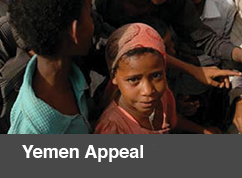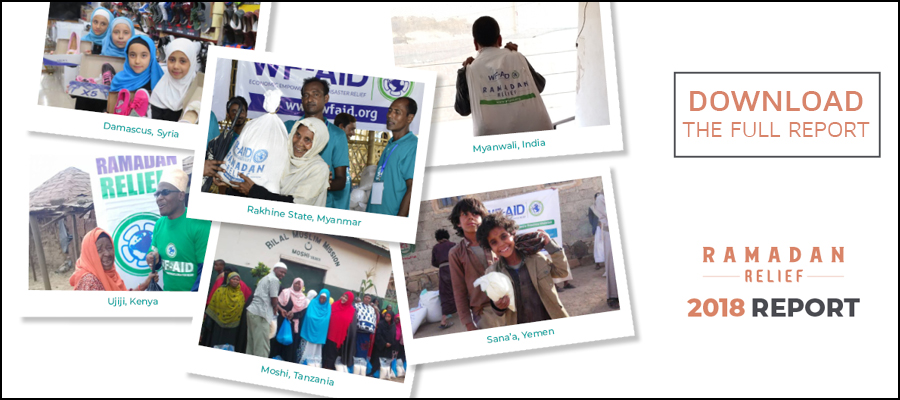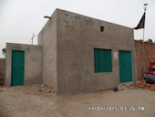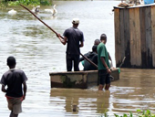Many children living in the rural areas of Kenya only have a single meal a day. The excessive poverty level, the rising rate of inflation, and the lack of adequate rainfall all make it very difficult for parents to provide a balanced meal 3 times a day for their children.
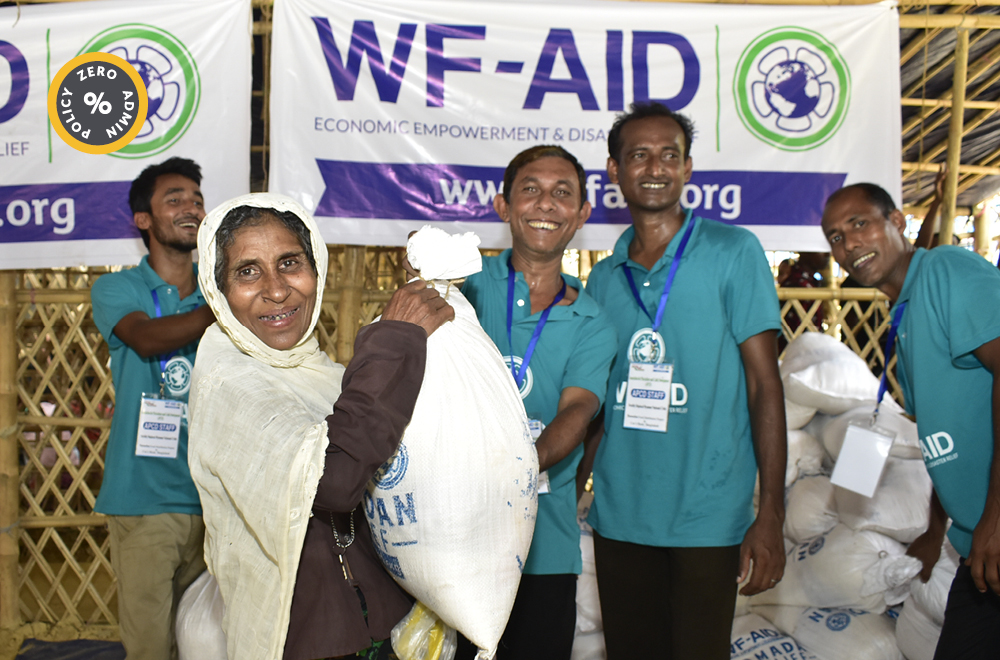
WF-AID is proud to share it’s 2018 Ramadan Relief Report, which details how your generous donations were distributed to those less fortunate across the world.
Alhamdulillah, thanks to your valuable donations to our Ramadan Relief appeal, you helped us reach out to 125,159 people across 16 countries in Africa, Asia, Europe and the Middle East. Throughout Shahr Ramadan, WF-AID teams and partners distributed 19,705 nutritious Food packs, delivered 198 community iftars and funded 50 farming kits to those living in developing countries. We were even able to arrange Eid gifts to orphan children and widows in places like Syria.
The success of our reach has only been possible through a combined effort from the generous support of our donors, hard-working teams on the ground and tireless volunteers who have worked through Shahr Ramadan to help fundraise or deliver aid to those most in need.
Our Ramadan Relief report highlights some of the great work you helped us do and I hope you enjoy the read. It’s amazing to see the positive impact you’ve helped to make within our own communities and to thousands of families living in developing countries.
Please keep supporting WF-AID by donating generously.
Madiha Raza, Head of WF-AID.
Thank-you!
Thanks to your ongoing support, the WF-AID Ramadan Relief appeal continues to grow every year. Each year, we aim to work in even more countries and reach out to those who are in desperate need of support. Please keep supporting the vital work we do, along with our other humanitarian projects, which can help provide immediate intervention for those in need.
Related News
Thanks to the support of donors who continue to donate to the Pakistan Relief Fund, The World Federation funded the construction of 14 new homes across 13 villages in Tehsil Ahmedpur Sial in Pakistan’s Punjab province.
In the afternoon of 16th January 2015, a severe Tropical Storm, known locally as "Chedza" hit parts of Madagascar bringing heavy thunderstorms across much of the country.






